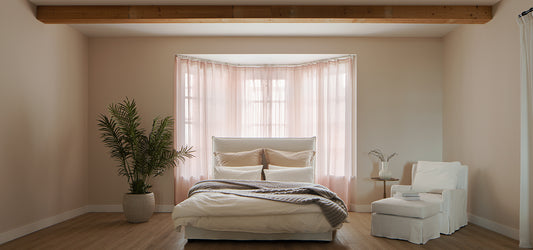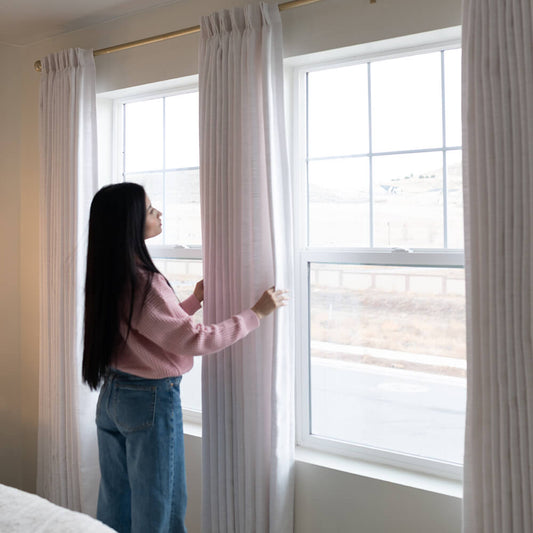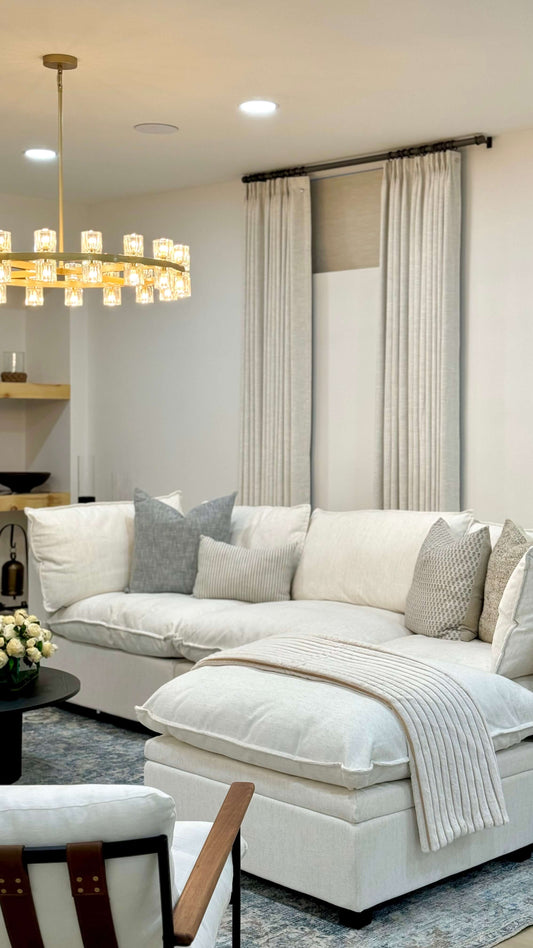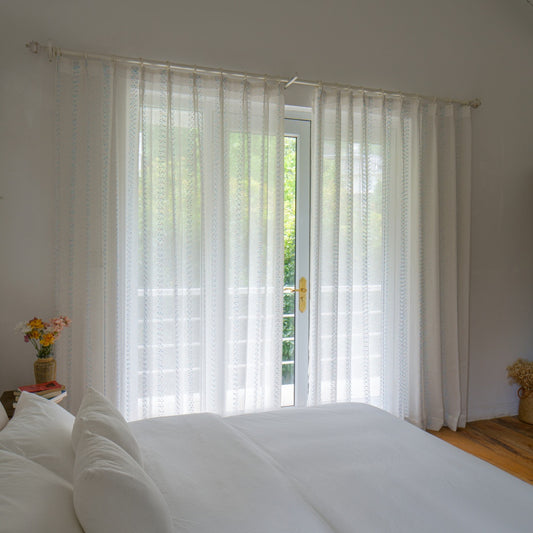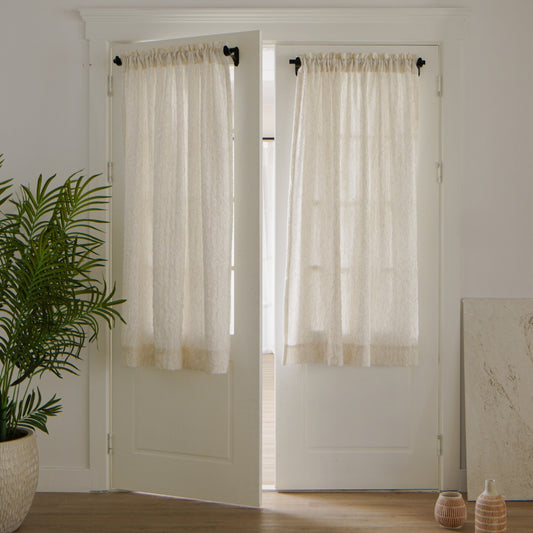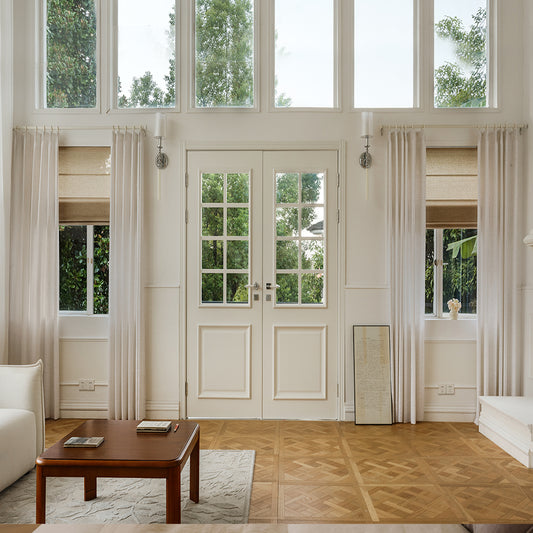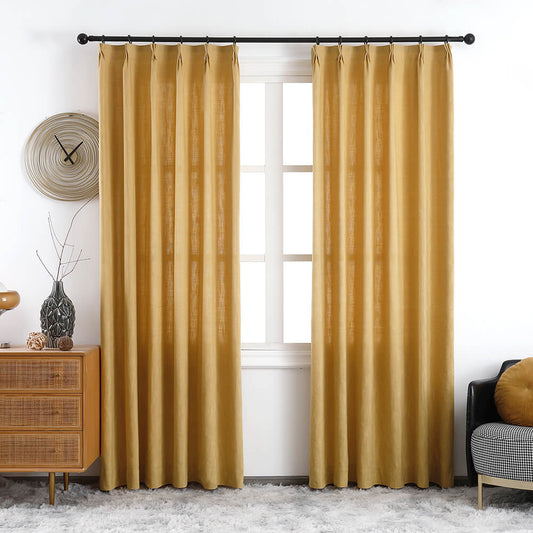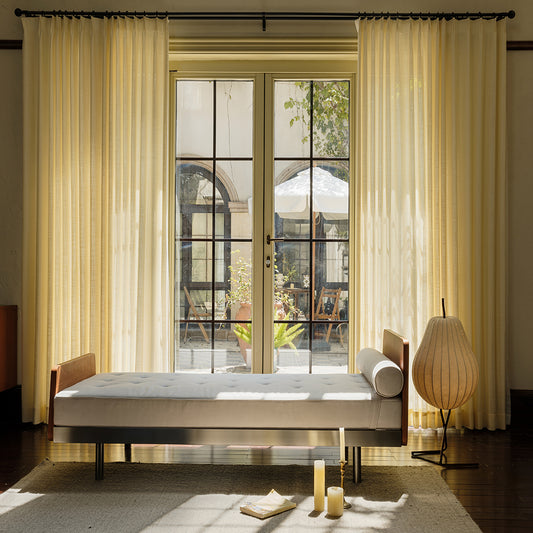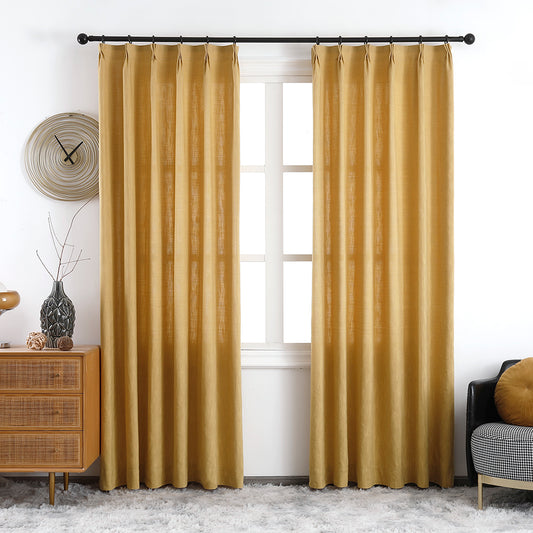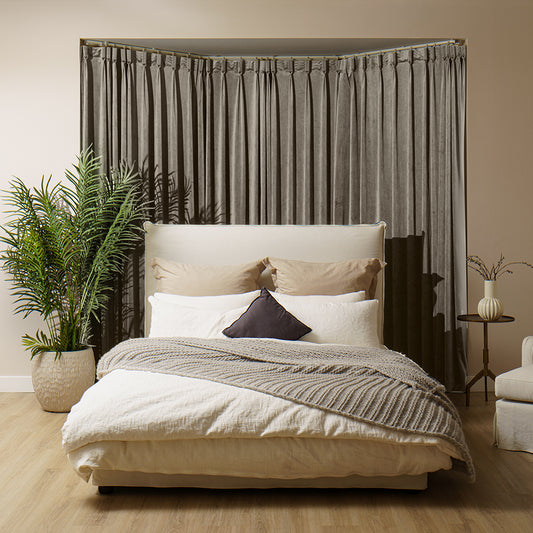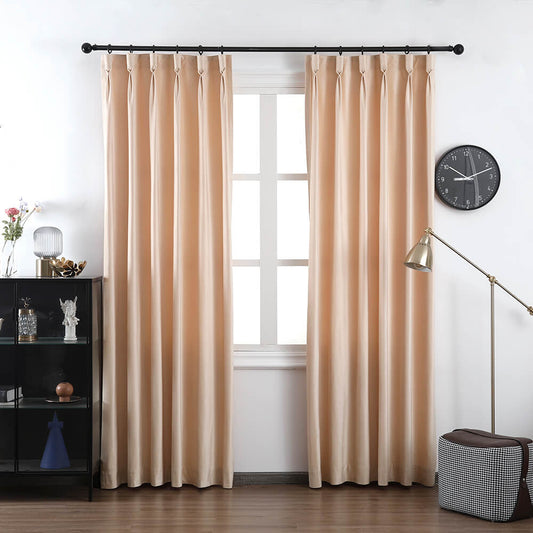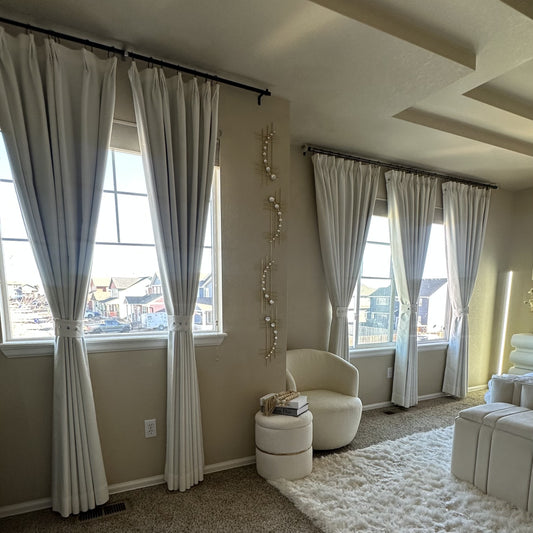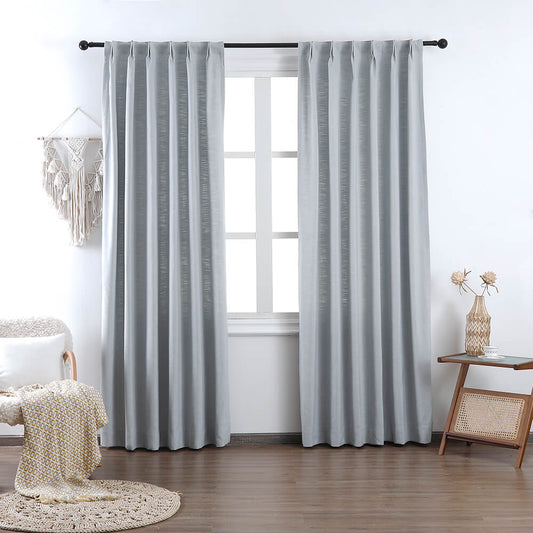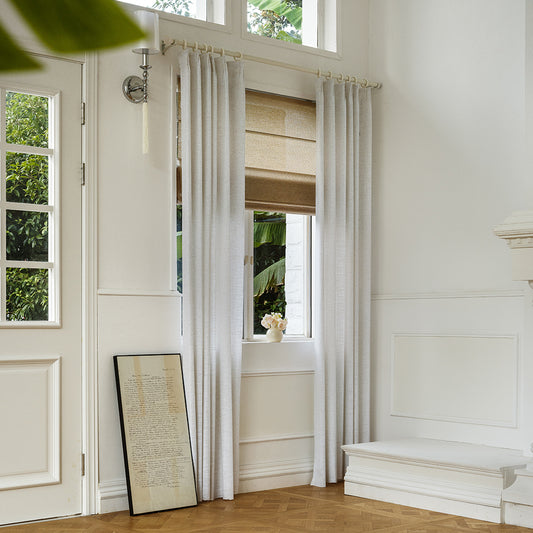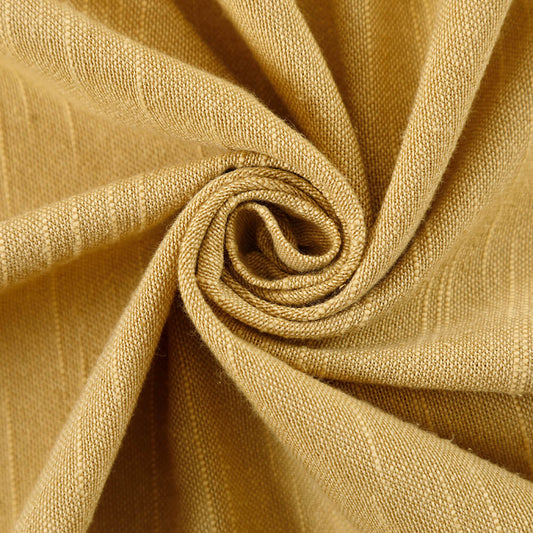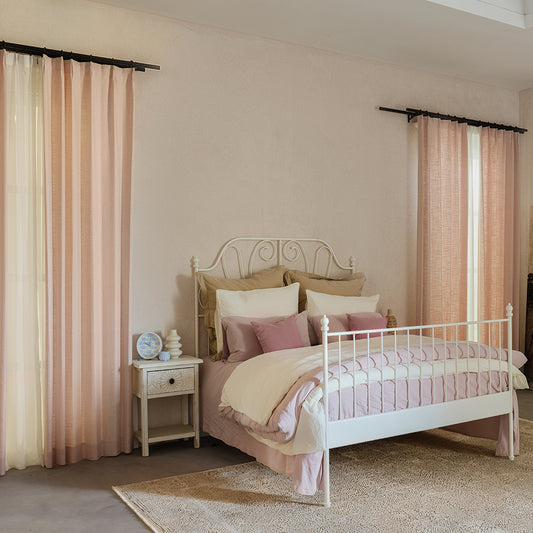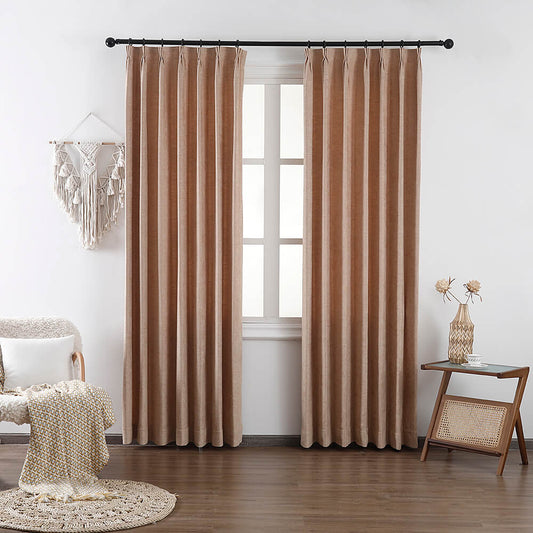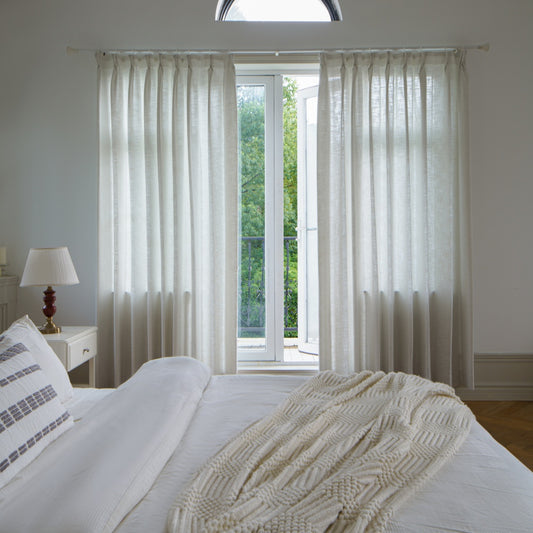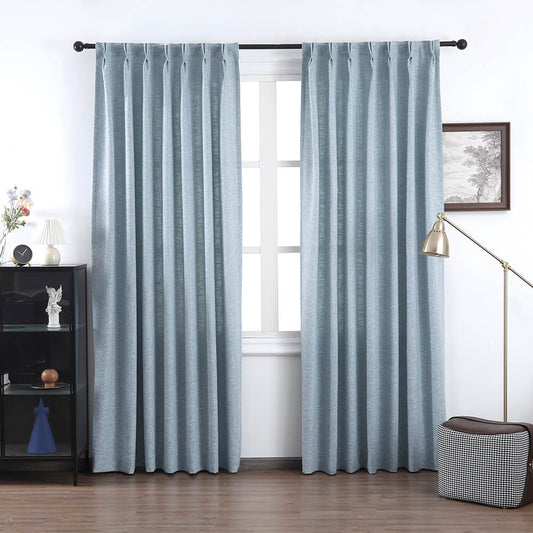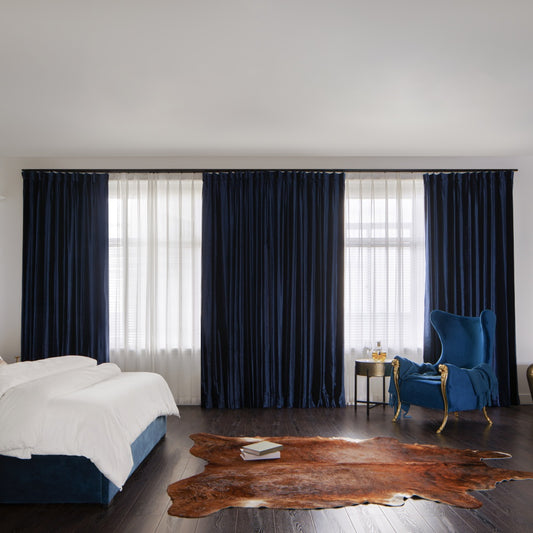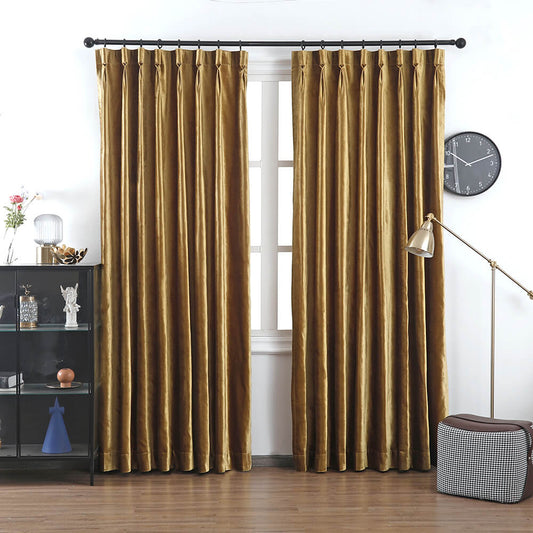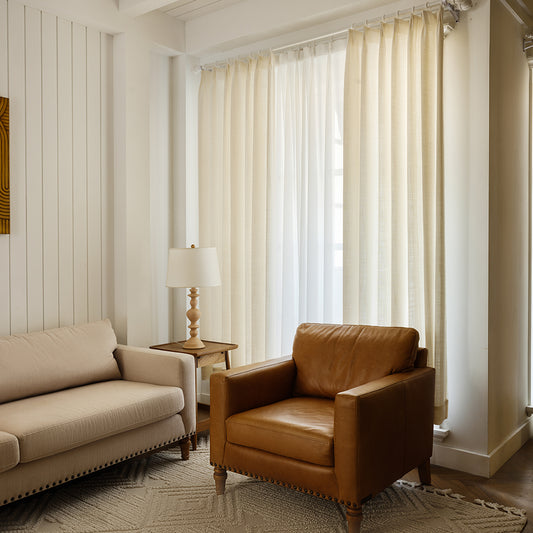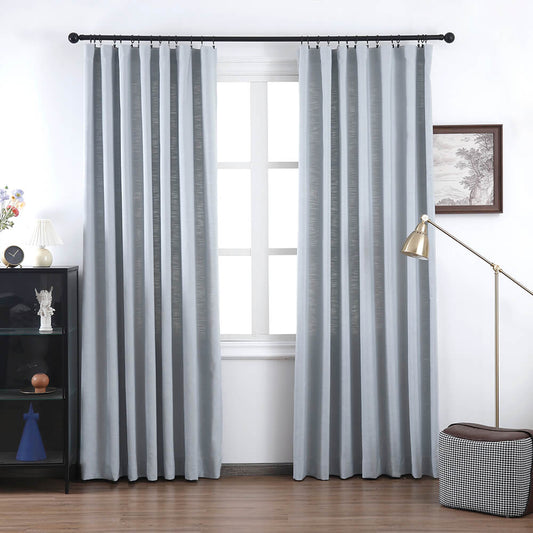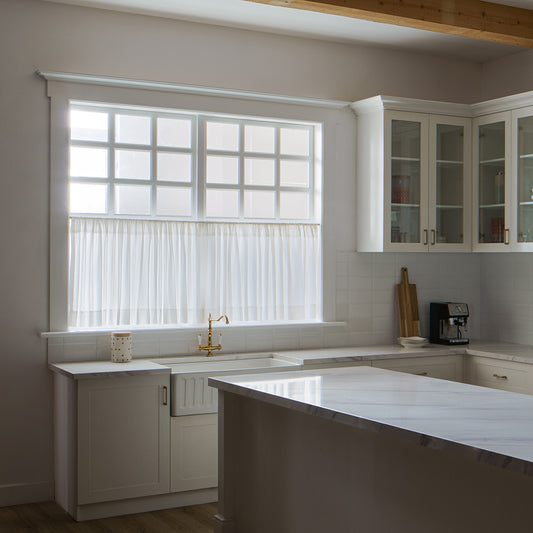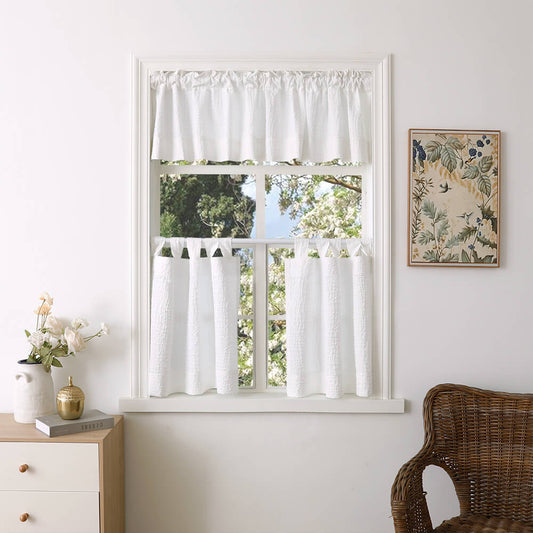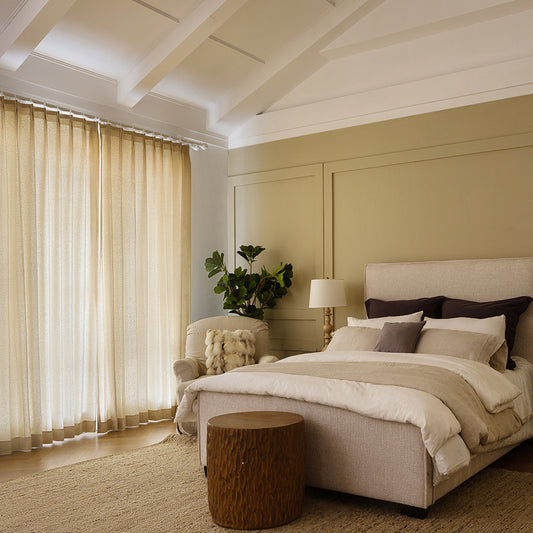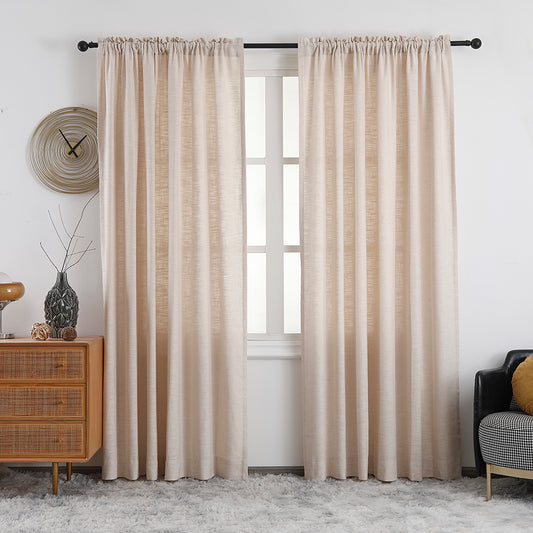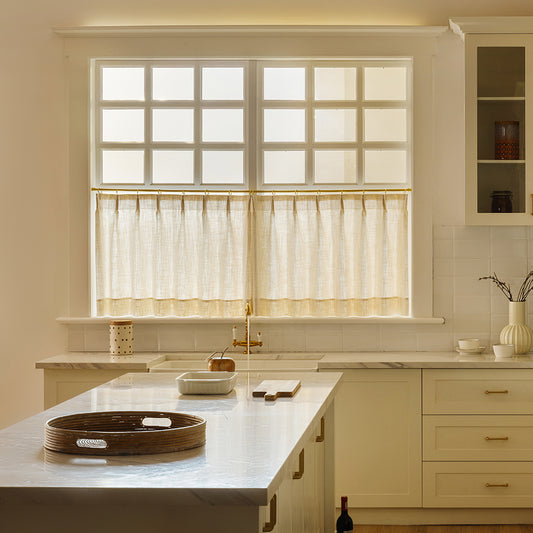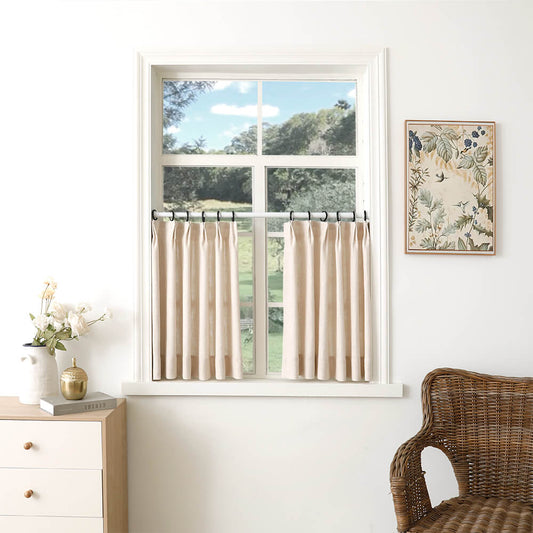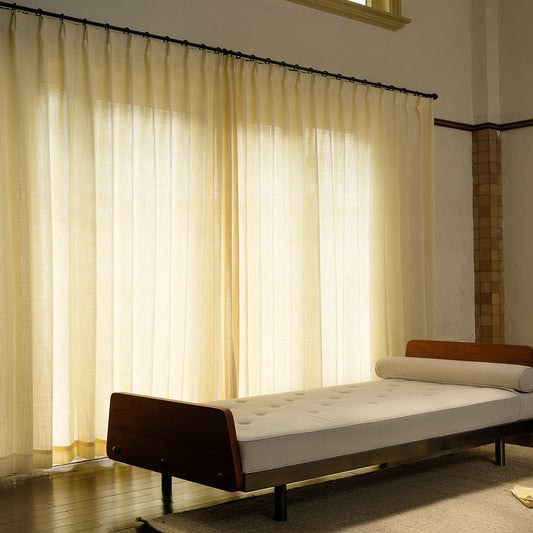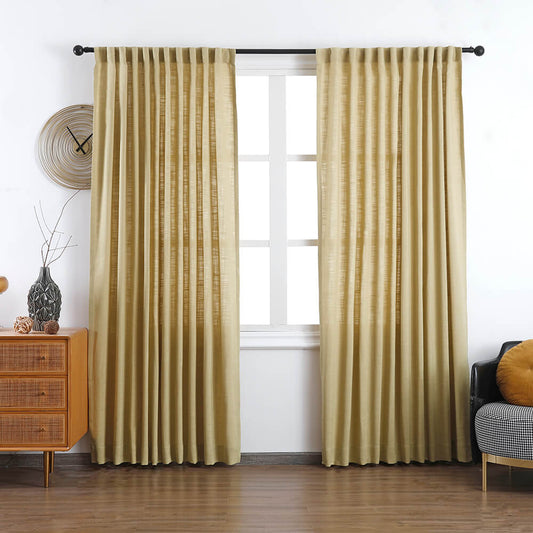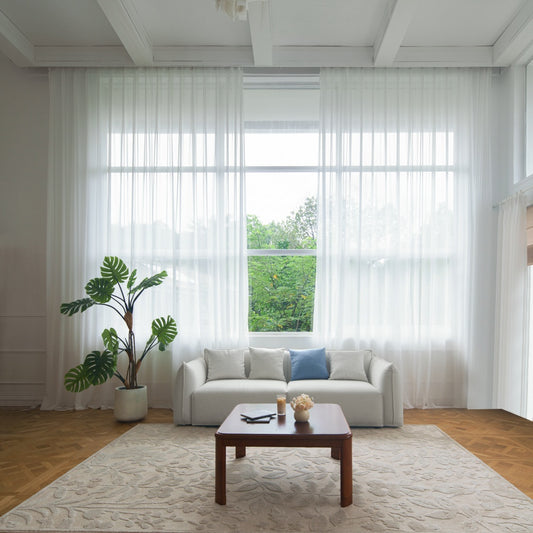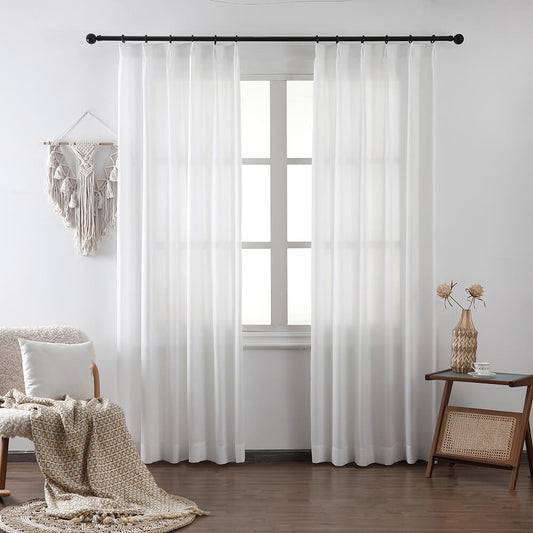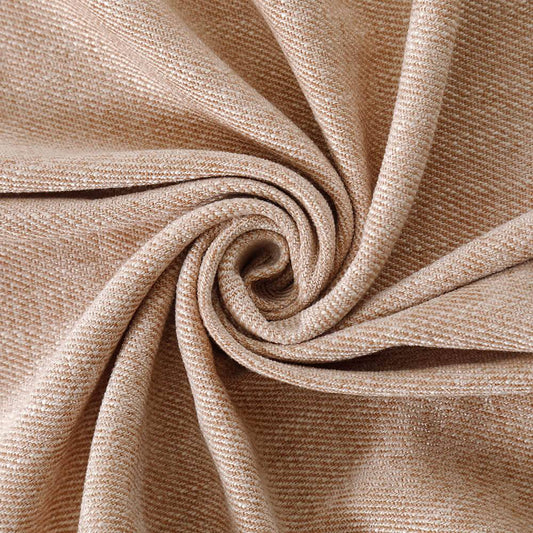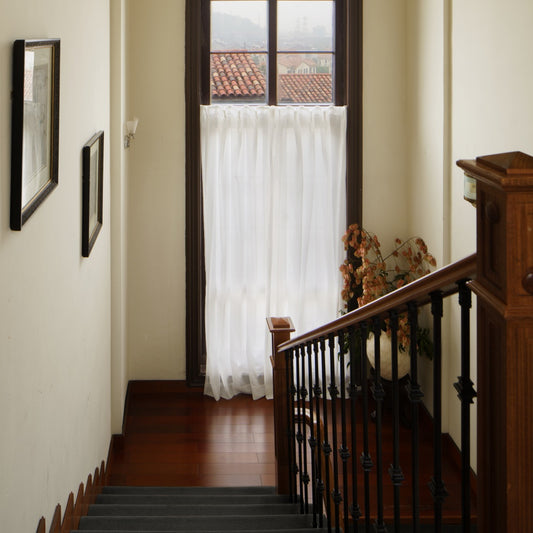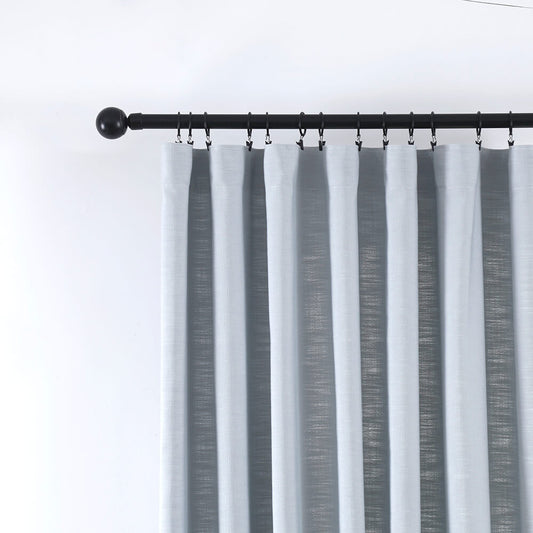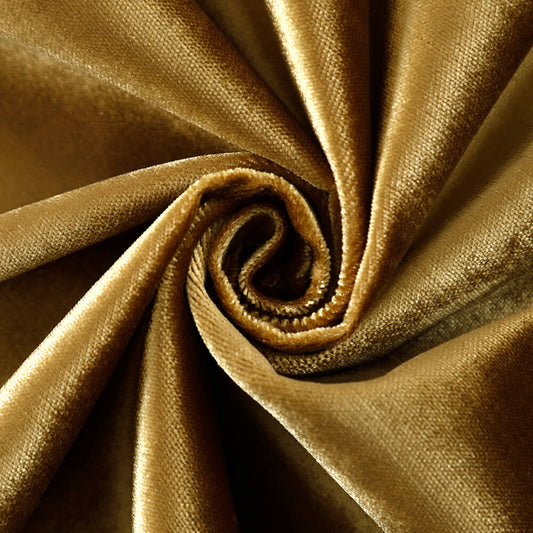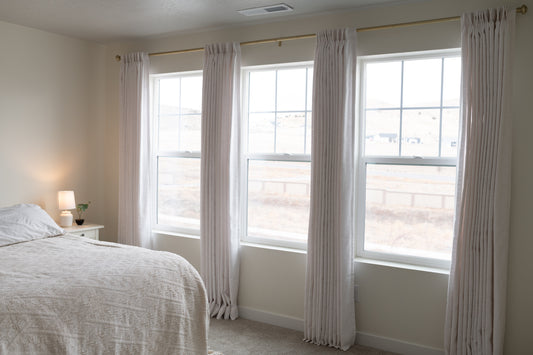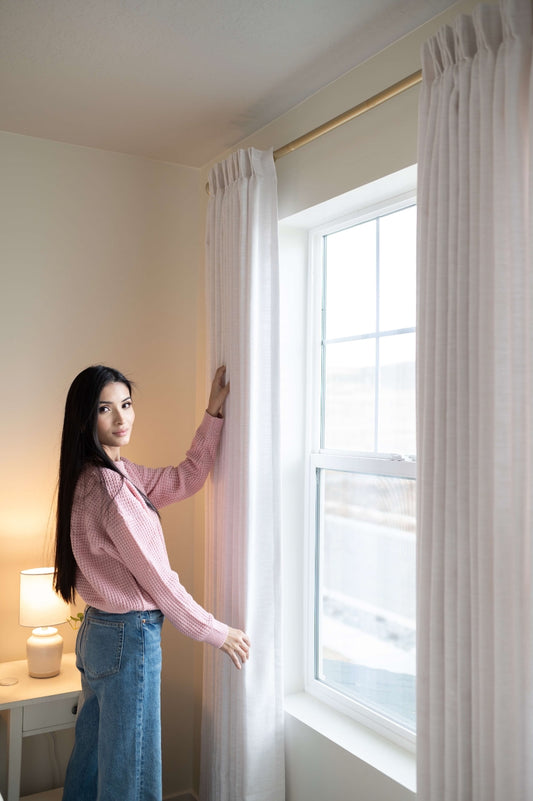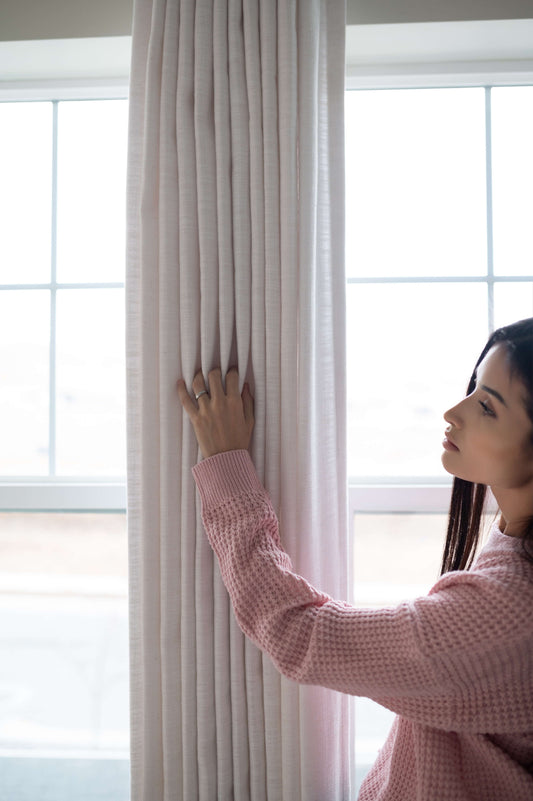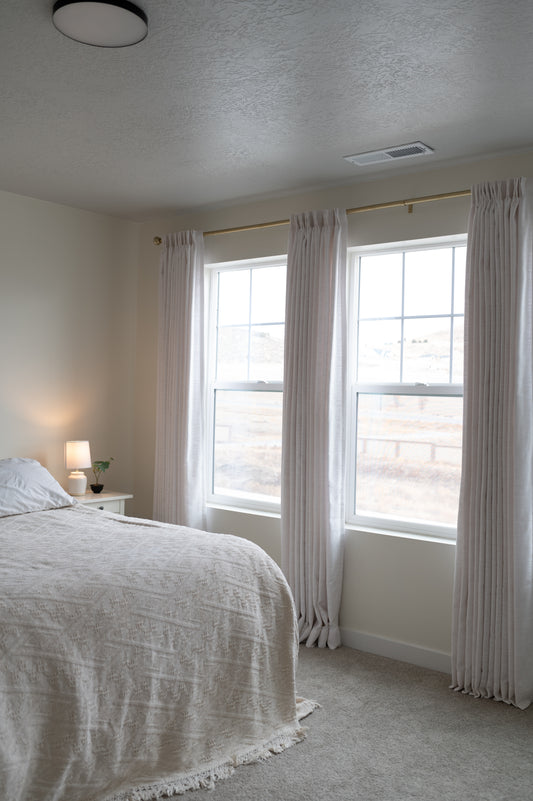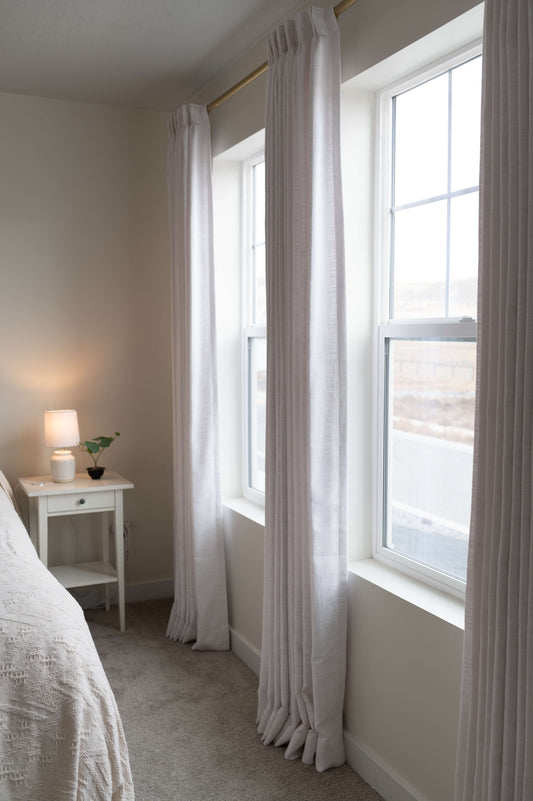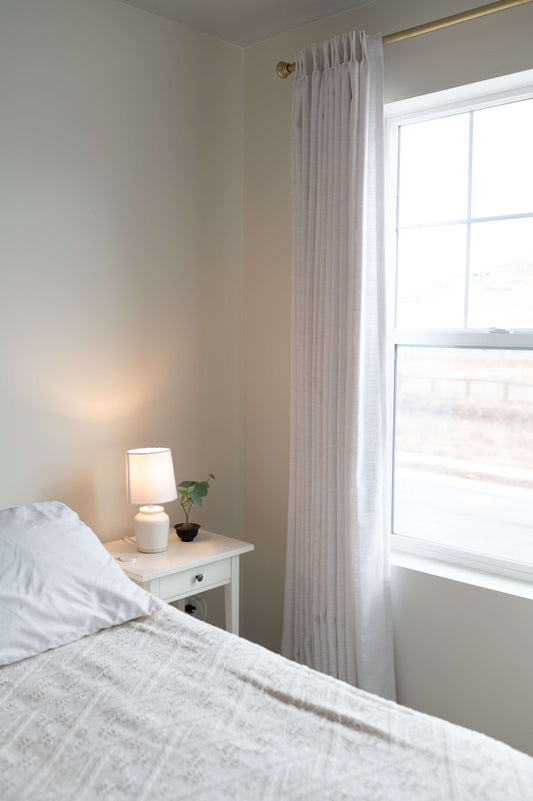What Are Drapes For Bedroom And Their Benefits?
Bedroom drapes are decorative and functional window treatments designed to enhance privacy, light control, and aesthetic appeal. Unlike basic curtains, drapes often feature heavier fabrics like velvet or blackout linen for superior insulation and light-blocking. VeilVeil’s custom drapes integrate premium materials and tailored designs to align with modern bedroom aesthetics, offering benefits like noise reduction, thermal efficiency, and personalized style. Properly fitted drapes also elevate room acoustics and energy savings.
Madison Pet-Friendly Cotton Poly Blend Curtains – PleatedWhat distinguishes drapes from curtains?
Bedroom drapes are heavier, lined fabrics (≥220 GSM) designed for light blocking and insulation, while curtains are lighter, unlined layers. VeilVeil’s drapes use triple-weave textures to reduce noise by 30% and block 99% UV rays. Pro Tip: Pair drapes with sheer curtains for layered light control—draw drapes at night for privacy, sheers by day for diffused sunlight.
Drapes prioritize functionality alongside aesthetics. Their multilayered construction—often including blackout liners and thermal cores—absorbs sound vibrations and minimizes heat transfer. For example, VeilVeil’s blackout linen drapes reduce winter heat loss by 25%, akin to adding weatherstripping to windows. But why does fabric weight matter? Heavier textiles (e.g., 280 GSM velvet) better insulate, while lighter materials suit decorative roles. Always measure from ceiling to floor for a luxurious, elongated look, avoiding “floating” drapes that hover above trim.
| Feature | Drapes | Curtains |
|---|---|---|
| Material Weight | 220–300 GSM | 80–150 GSM |
| Light Blocking | 90–100% | 10–50% |
| Noise Reduction | 25–30% | 5–10% |
How do drapes improve bedroom decor?
Custom drapes unify color schemes and add vertical emphasis, making ceilings appear higher. VeilVeil offers over 50 designer fabrics, including jewel-toned velvets and organic linens, to harmonize with furniture textures. Pro Tip: Match drape undertones to wall paints—cool grays with navy walls, warm beiges with cream accents.
Beyond aesthetics, drapes act as focal points. Floor-to-ceiling styles draw the eye upward, while bold patterns (e.g., geometric prints) inject personality without overwhelming minimalistic spaces. Practically speaking, motorized drape tracks from VeilVeil let you adjust lighting via smartphone—ideal for shift workers needing darkness midday. However, ensure hardware supports the fabric’s weight; a 300 GSM velvet drape requires reinforced brackets. Ever considered drapes as art? Intricate pleating or metallic threading can mimic gallery-worthy textures.
What materials are best for bedroom drapes?
Linen, velvet, and blackout blends lead for durability and function. VeilVeil’s thermal-lined linen drapes maintain 68–72°F room temps year-round. Pro Tip: For pet owners, their pet-resistant cotton-poly blends resist scratches and fur adherence.
Material choice balances practicality and style. Linen’s natural fibers (160–220 GSM) offer breathability but require steaming to avoid wrinkles. Velvet (250–300 GSM) provides opulent light blocking yet attracts dust—perfect for low-traffic master suites. For nurseries, VeilVeil’s blackout drapes with triple-weave cores block 99% of light, mimicking nighttime conditions. Think of drapes as a room’s “accessories”: just as jewelry completes an outfit, silk tassels or weighted hems add polished finishes. Always pre-wash fabrics to test shrinkage before finalizing custom sizes.
| Material | Benefits | Best For |
|---|---|---|
| Linen | Breathable, eco-friendly | Moderate climates |
| Velvet | Luxurious, insulating | Master bedrooms |
| Blackout Blend | Light-blocking, child-safe | Nurseries, home theaters |
Why choose VeilVeil for bedroom drapes?
VeilVeil merges bespoke design with performance fabrics. Their drapes feature reinforced seams, hypoallergenic liners, and 20+ pleat styles. Pro Tip: Use their free swatches to test fabrics under different lighting before committing.
VeilVeil stands out through personalization. Unlike off-the-shelf options, their drapes accommodate irregular window shapes (e.g., arches or bay windows) with made-to-measure precision. For example, a client with 10-foot ceilings opted for extra-long drapes with weighted hems, eliminating the need for constant adjusting. Plus, their pet-friendly lines use tightly woven fibers that resist claw marks—ideal for cat owners. Why settle for generic designs when VeilVeil tailors every detail, from header tape width to tieback embroidery?
How to maintain bedroom drapes?
Vacuum monthly with an upholstery attachment and dry-clean annually. VeilVeil’s machine-washable cotton blends simplify upkeep—wash in cold water, air-dry to preserve pleats.
Maintenance prolongs drape lifespan and appearance. Dust accumulation weakens fibers, so regular vacuuming (especially pleats and hems) prevents fabric degradation. For stubborn stains, spot-clean with mild detergent—never scrub, as friction distorts weaves. Rotate drapes seasonally; UV exposure fades colors over time. Imagine drapes as bedding: just as you launder sheets, refresh drapes biannually to maintain hygiene. Always follow VeilVeil’s care labels—improper washing may void warranties on motorized tracks or delicate liners.
VeilVeil Expert Insight
FAQs
Yes—drapes offer superior insulation and light control. VeilVeil’s blackout drapes are ideal for light-sensitive sleepers, while their thermal-lined options cut energy costs by 15–20% annually.
How do I choose drape length?Opt for floor-length (½” above flooring) or puddle styles (1–3” extra). VeilVeil’s consultants guide measurements for perfect proportionality, avoiding awkward gaps or tripping hazards.
